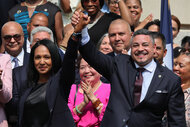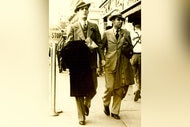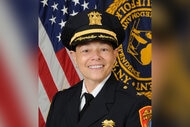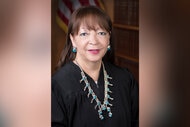Create a free profile to get unlimited access to exclusive videos, breaking news, sweepstakes, and more!
4 Questions For 4 Latina Criminal Justice Trailblazers: Attorney Carmen Ortiz
In honor of Hispanic Heritage Month, Oxygen.com asked four trailblazing Latinas to talk about their professional experiences in our system of law and order. Carmen Ortiz, a form US Attorney under President Obama and prosecutor who believes that victims and defendants deserve equal rights within the criminal justice system.
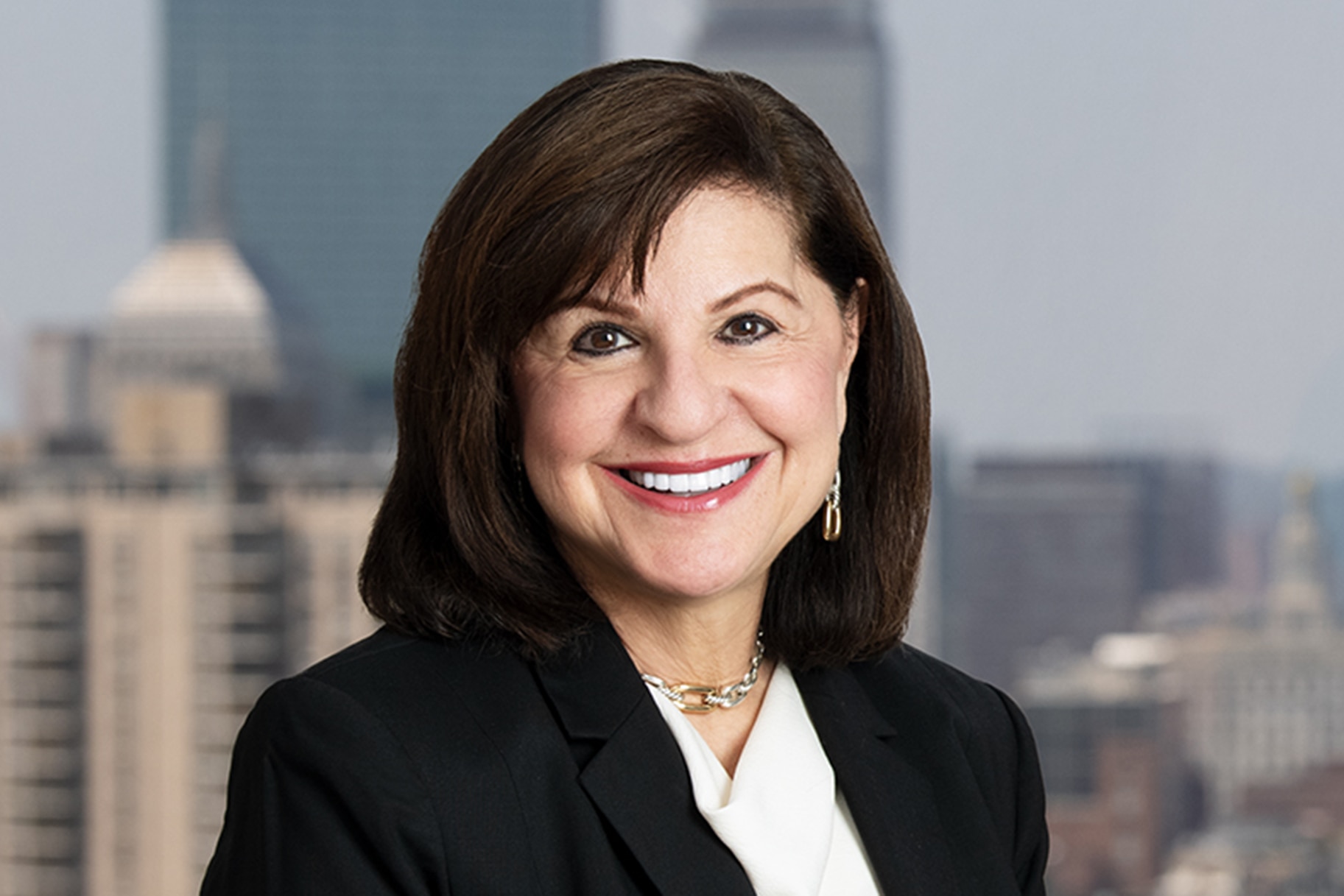
When President Barack Obama nominated Carmen Ortiz as the U.S. Attorney for the state of Massachusetts in 2009, they made history. The then-assistant U.S. Attorney, who was confirmed to the top job in November 2009, became the first woman and first Latina to serve in that role, after 12 years of prosecuting white collar crime for the department.
While serving in that role, she was responsible for the prosecution of the Boston Marathon bomber, Dzhokhar Tsarnaev, notorious Irish-American gangster James "Whitey" Bulger and his girlfriend, Catherine Greig, and a massive takedown of the Salvadoran MS-13 gang that helped cripple their East Coast operation, among others.
Before working for the U.S. Attorney's office in Massachusetts, Ortiz had served as an assistant district attorney in Middlesex County, Massachusetts — the area north and west of Boston that includes Cambridge — and participated in the National Football League's 1990 investigation into sexual harassment allegations against team members of the New England Patriots, which ultimately upheld the reports from then-Boston Herald reporter Lisa Olson.
In an interview with Oxygen.com, she spoke about what she saw as a little girl that made her want to become a lawyer, the importance of representation for victims of crimes, and how working within the system is an important way to bring change to it.
Oxygen: What made you pursue the law as a career, and did you always want to be a prosecutor?
Carmen Ortiz: What made me want to pursue the law initially was the excitement about being a lawyer — in particular, a trial lawyer — was that, when I was eight or nine, I was watching “The Perry Mason Show,” which was the “Law & Order” of its time. The courtroom dramas, the scenes of witnesses testifying, the excitement about the lawyers presenting and Perry Mason presenting his arguments before a jury and a judge, I found that all incredibly exciting and something I would be interested in doing. When you’re 8 or 9, you’re kind of impressionable and it was really my first introduction to the law because we really didn’t have anyone in my family who had gone to college, let alone become a lawyer.
But as I got into high school, and I learned more about what it meant to be a lawyer, I thought it would be a career for me that would be interesting, that would be challenging, in which I could really build a future on. I’m the oldest of five children, my parents were from Puerto Rico and I grew up in Spanish Harlem in a housing project. And so to not only be able to go to college but to aspire to become a lawyer and be able to accomplish it was a real goal and a dream of mine.
I grew up with my parents telling me that, if I worked really hard and focused on school, that I should be able to accomplish my goals and my dreams. I feel that that way that I was raised was really to my benefit.
And then certainly, as I went to college — in particular for me, because I was a first generation college student at Adelphi University— and learned even more about being a lawyer and just how challenging and interesting it would be, and an accomplishment, I knew it was for me.
I picked George Washington University for law school in part because I had done a summer internship for a Congressman from Orange County when I was in college, and I loved Washington, D.C. I loved politics at the time, and government, and I thought that being in Washington would be an incredible place to study law. And as I looked at different law schools, GW was right in the city and it had tremendous financial aid and scholarships available. I applied for and was offered a full tuition scholarship, so that’s why I went to GW, because I didn’t really have the financial means. I went through college and through law school relying on scholarships, financial aid and student loans, as well as work study and other part time jobs.
Then when I was in law school, I learned more about what it meant to be a lawyer and I went into clinical programs; I did the Legal Aid clinic and, in my third year of law school, I did a government prosecutor course. And that’s really what led me to want to become a prosecutor.
I realized that, as a prosecutor, you advocated for victims rights, you helped to address wrongs that people had suffered through and advocate on their behalf in court. But you also had tremendous power to make sure that the law was being properly observed, that defendants were being properly treated and were going through a criminal justice system that was fair, reasonable and just. I thought that as a prosecutor I would have more power because I would be bringing justice to victims and in cases where I didn’t think the evidence was enough, where I thought the system was not treating individuals fairly, I could dismiss a case. I had that kind of power.
What did it mean to some of the people you encountered in court to see a Latina in your role, given how disproportionately those roles are filled by white men?
I think initially the reaction was one of surprise, but one of gratitude and trust. You’re right about prosecutors and who fills those roles and, when I started in the industry, there were members in my community and in my own family who felt that, when I graduated from law school, I should be a defense attorney — that I was being a sell-out by becoming a prosecutor and imprisoning individuals who looked like us. On the other hand, I told my family and others who had that perspective that individuals who looked like us (and others) were victimizing individuals who looked just like us.
When they come to court, I think it’s important for them to see people who reflect the community that they’re serving, and I think it makes it more comfortable for someone to be able to trust in the system, to be able to disclose and provide what injustices have been committed against them. I know certainly in Washington D.C. and in particular in Massachusetts, there weren’t too many Hispanics around the office, and just being fluent in Spanish helped with that population. And so I thought it was very, very important in garnering trust in the system and having someone who you believed would be able to advocate on your behalf.
Especially in law and order, it is predominantly white-dominated — though we are seeing more color now, thankfully, gratefully — but it’s also very male-dominated industry in terms of how women can break the glass ceiling. You have to be strong, and you have to surround yourself with people who support you, who believe in you and will encourage you throughout this process. You cannot be afraid to take risks and you should not let others’ perspective of you and what they think you can accomplish, what they think you can do, who they think you are to control the narrative. You should not allow stereotypes to keep you down.
It’s important to overcome those stereotypes, to show your strength, to show your courage, to show your passion and your commitment for advocating for those who don’t have a voice, for those who are less fortunate, for those who have been victimized.
Do you feel like the criminal justice system is perceived as functioning well for Latinos in America right now by your community?
I think they think it’s failing them and it has failed them in the sense that, when you look at the sentencing, particularly on the federal level, it’s operated in a way that’s had a disparate impact on Latinos and on African Americans.
I know that when I was United States Attorney under President Obama, Attorney General Eric Holder and the Department of Justice did a review of sentences and the use of mandatory sentences and charges, and the use of enhancements to make a sentence more severe, based on what your criminal history was — any prior felony convictions and so forth. The study revealed that it resulted in the individuals in federal prison being more disproportionately Latino and even more disproportionately African American. They were being charged in a more serious way and more frequently.
So when the community looks, you have victims that are being taken care of but, even then, in the criminal justice system, you have victims who feel that they have not been heard. A white individual, say, a woman who has been sexually assaulted, is more likely to be believed than, say, a Latina.
So I think that in terms of how they have been treated overall, they feel that there has not been enough representation on their behalf when they are victims of crimes and that not enough is done for that community. And when they are accused of crimes, they have been prosecuted and sentenced in a much more severe fashion.
I think we’re trying to rectify that in terms of how we move forward in the justice system and that’s why you see all these cries out for police reform and criminal justice reform in general. And so much of this came to greater light after the George Floyd murder.
What would you like people in your community to understand about your role in the criminal justice system and how it works?
What our community needs to realize is that, as much as there have been historical wrongs that need to be criticized, that need to be reviewed, that need to be rectified, that it is important for Latinos and African Americans and people of color in general to participate in the system. When I’m there, because of my background, I am able to see certain injustices and address them. I have certain sensitivities that someone who has not lived my life doesn’t have.
It’s one thing to criticize a system that is maybe unjust, that unfairly impacts our community — the Latino community, the African American community — but you also need to make change and correct the system from within. Because when you’re in the system, you do have a voice. You do see certain wrongs based on your own personal upbringing and experiences and if you don’t have a voice within, if you can’t make a difference from within, there’s a lot that’s lost.
In particular, when it comes to law enforcement, whether it’s the police department or the prosecutor’s office — certain the defense has had more diversity — but I think it’s important to have diversity in all of these aspects of the justice system. Then you have folks who are being represented by people who look like them, and people are able to build greater trust in that system and in those processes.
